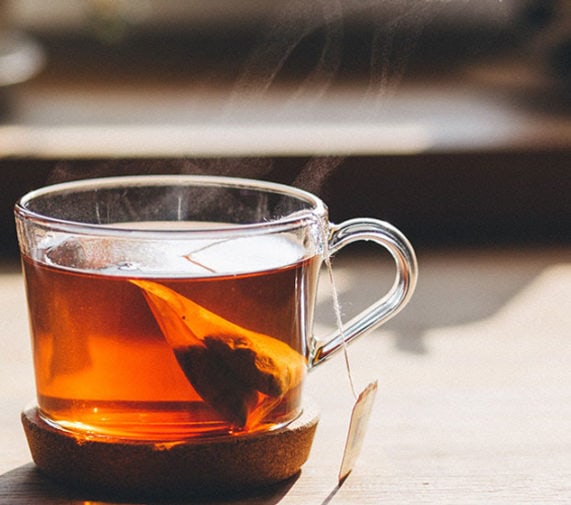Making a cup of tea is a daily ritual for millions of people around the world. In addition to the comfort and warmth it brings, tea has astounding benefits in every cup.
Tea carries helpful antioxidants that can protect your cells against inflammation and from the damage done by free-radicals that find their way into the body from pollution, certain foods and smoking—and which eventually can contribute to expedited aging, cancer, clogged arteries and heart disease.
You might be surprised to know that black tea, white tea, green tea and oolong are all from the same leaf of the Camellia sinensis plant, found in India and China. What differentiates them is the time they’re harvested, how they’re processed, and their resulting taste and healing properties.
White and green tea: White tea is from the most pure form of the leaf—or even the bud before it becomes a full leaf—because it’s unprocessed and unfermented. Green tea is made from leaves that have not been wilted and have had minimal oxidation. Both of these contain more antioxidants than their darker counterparts and have been linked to lower rates of some cancers, due to their catechins, compounds that help protect against invading tumors.
Black tea: The breakfast drink of choice for many tea lovers, black tea is made with fermented leaves and has the highest caffeine content of all the teas (but about half the amount as coffee). It contains properties believed to mitigate the effects of cigarette smoke and prevent lung cancer, and four or more cups a day have been shown to reduce the risk of a stroke.
Oolong tea: Halfway between a black tea and a green one, oolong leaves are only partially oxidized and are usually prepared in tight balls or strands that unfurl when they make contact with hot water. Japanese researchers recently found it had a positive effect on reducing bad cholesterol levels in people with cardiovascular disease, obesity and type 2 diabetes.
Preparing tea
You’ll want to add boiling water for black tea and steep it for three to five minutes or to taste; for the other teas, boil the water and then wait for it to cool two or three minutes, then steep the tea for two to three minutes more.
If the acidity from “naked” tea (usually strong black tea) gives you a stomachache or makes you nauseous, cut it with some milk or a milk-alternative, or avoid drinking it on an empty stomach. It’s also good to become a purist—when you add too much cream or sugar, you may start to negate some of the tea’s great benefits. Bottoms up!
twistup
Love OrangeTwist?
Join our twistup membership and receive a $100 gift card today!



